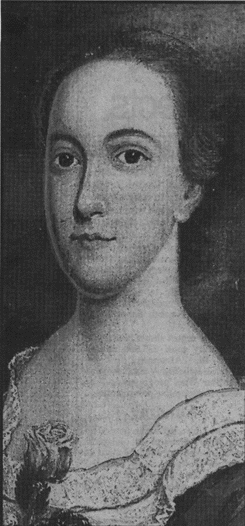The Punishment of the Other Jacobites
 Following the deaths of Derwentwater, Hunter and Collingwood, the Northumbrian gentry in London were put on trial. Thomas Errington and John Clavering had been impeached with the seven lords but they were both pardoned due to influential family and friends in London. Clavering was related to Lady Cowper, the wife of the Lord Chancellor. Thomas Forster, William Shafto, Thomas Hall, William Macintosh and seven other Scots and Irish were not so lucky. Their trial was held on 14 April, but four days earlier Forster had made his escape with the help of his sister, Dorothy, and within twenty-four hours he was sailing to France.
Following the deaths of Derwentwater, Hunter and Collingwood, the Northumbrian gentry in London were put on trial. Thomas Errington and John Clavering had been impeached with the seven lords but they were both pardoned due to influential family and friends in London. Clavering was related to Lady Cowper, the wife of the Lord Chancellor. Thomas Forster, William Shafto, Thomas Hall, William Macintosh and seven other Scots and Irish were not so lucky. Their trial was held on 14 April, but four days earlier Forster had made his escape with the help of his sister, Dorothy, and within twenty-four hours he was sailing to France.
At their trial, the defendants were given three weeks to prepare their defence. On 4 May Mackintosh and eight others followed Forster's example and made their escape from Newgate Gaol. These escapes and the final collapse of the Rising in Scotland brought about a change in public opinion in London. Now they were no longer a threat, the rebels began to be seen as romantic, idealistic and harmless. When Charles Radcliffe was taken through London to his trial, an enthusiastic crowd almost pulled him out of his coach. On 18 May he was found guilty and sentenced to death but his execution was deferred to July and then again indefinitely. On 11 December he attended a party at Newgate Gaol. Charles and an accomplice pretended to be visitors and the turnkey simply let them out of the prison! Soon he was at the Stuart Court at Urbino. Other trials continued into July 1716. Twenty- one men were condemned to death but only four were executed - Captain Oxburgh and John Hall amongst them. Hall tried to enter a plea of insanity but this failed. On the scaffold he made a bold speech, stating his loyalty to the Stuarts and declaring himself 'not a traitor but a martyr'. Public opinion persuaded the Government to spare the remaining Jacobites, but they could not escape sentence. Three different sentences were passed: attainder, forfeiture of estates and transportation. Only Widdrington suffered all three, though in the end he was spared exile in Carolina and was freed in 1717. He had lost all his lands and his title, though he was granted a small pension to support his wife and children.
Other trials continued into July 1716. Twenty- one men were condemned to death but only four were executed - Captain Oxburgh and John Hall amongst them. Hall tried to enter a plea of insanity but this failed. On the scaffold he made a bold speech, stating his loyalty to the Stuarts and declaring himself 'not a traitor but a martyr'. Public opinion persuaded the Government to spare the remaining Jacobites, but they could not escape sentence. Three different sentences were passed: attainder, forfeiture of estates and transportation. Only Widdrington suffered all three, though in the end he was spared exile in Carolina and was freed in 1717. He had lost all his lands and his title, though he was granted a small pension to support his wife and children.
Many of the other Jacobite prisoners were deported. The sentence was for seven years, and for this period they were virtual slaves to the private contractors who ran the deportations for the Government. Over six hundred and fifty Jacobites were transported, and at least a dozen Northumbrians were among them.